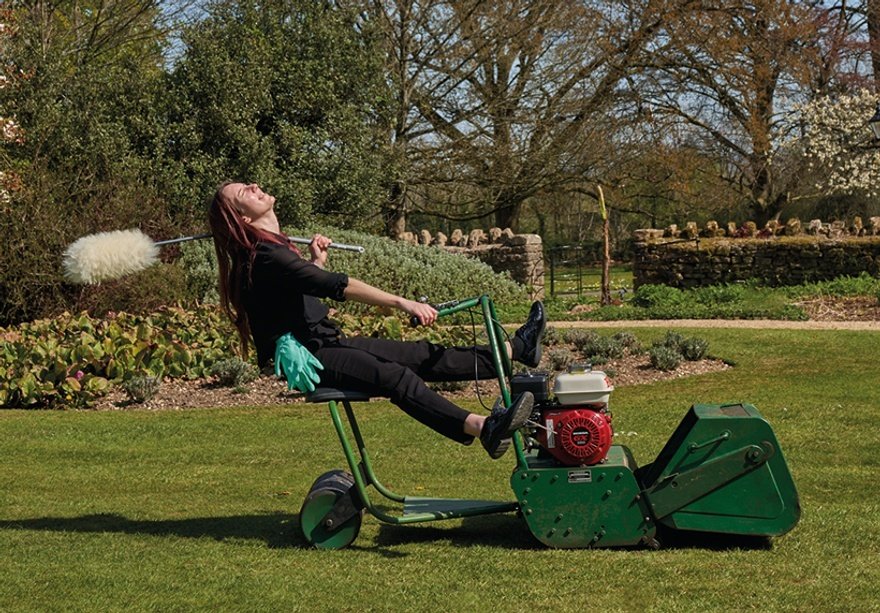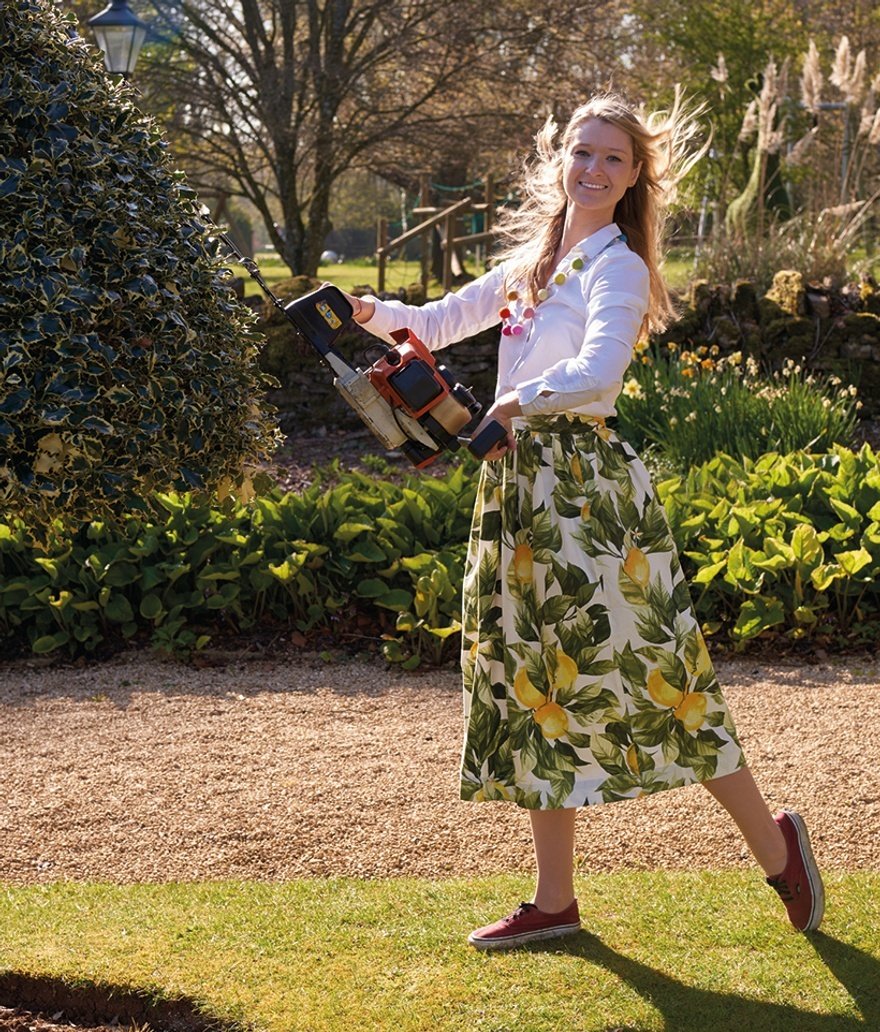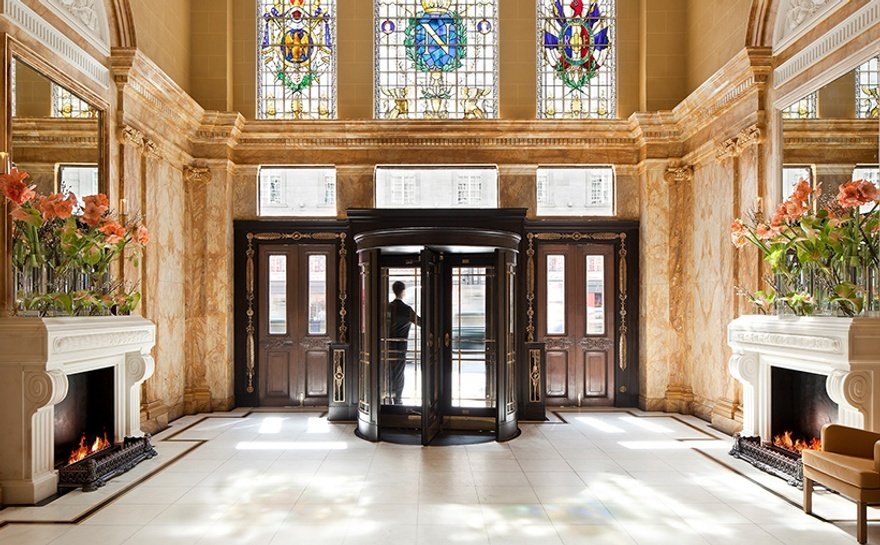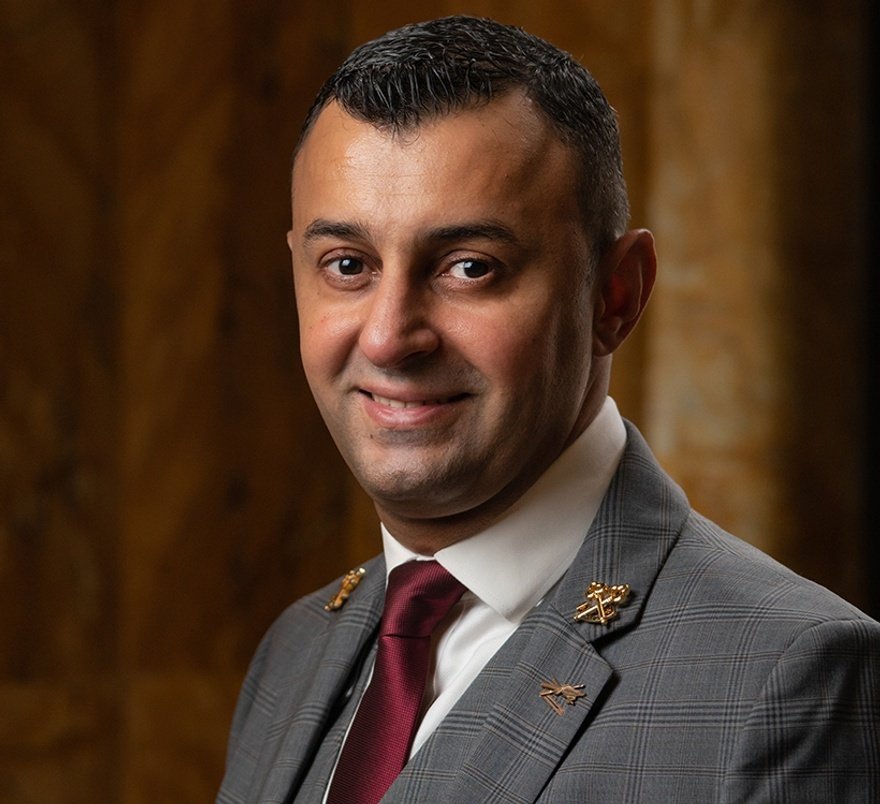Friendly face, sage dispenser of local knowledge or even confidant, the concierge is the time-honoured go-to for guests. But digitisation has taken over the practical side of the job, so how has the role changed, asks Rosalind Mullen
Traditionally, a good concierge accrued knowledge and contacts over decades of loyal service, with that knowledge often passed from father to son. These long-serving employees also gained the friendship and trust of regular guests. Over the past few years, however, hotels have had to adapt and streamline their front-line departments, and the traditional concierge role has not escaped scrutiny. The internet already means guests can book their own theatre tickets, call Ubers and research restaurants easily online, while digital apps mean that concierge desk can often be bypassed altogether.
It's a trend compounded by economic pressures and the pandemic, hastening a rethink of how the concierge service is provided.
A lack of travellers during the pandemic hit London's five-star hotels particularly hard, and concierges were among many hospitality employees furloughed or made redundant. Meanwhile, others have found the changes in the role hard to bear and have left the sector altogether (see panel).
Others still have accepted the need to evolve, says Toru Machida, president of the GB chapter of Les Clefs d'Or, the professional association of hotel concierges. "While London had no international travellers, concierges found their own way to make themselves useful," he says. "Some assisted with front-desk duties and some helped in back-of-house departments. It was a learning opportunity for all of us to gain new skills and have a wider understanding of hotel operations."
While stressing that the role of concierge remains crucial in a customer-facing industry, Machida welcomes the introduction of guest apps. "Some of the technologies we use enhance guest experience during their stay. It provides up-to-date and precise information. Concierges play a key role to ensure that guests have access to relevant and suitable information. Apps also help us to have efficient communication with our guests."
At your service
In response to the demands of the past 18 months or so, Millennium Hotels is one of several groups that has taken a new approach to delivering its concierge service by merging roles across its UK portfolio. "Our guests are increasingly time-poor, with the expectation that services such as Ubers, restaurants or theatre tickets be booked immediately on request," says Richard Adler, vice-president of sales UK and EU and of strategic accounts at Millennium Hotels & Resorts. "In response, we have designed a streamlined service that aims to deliver guests' needs as efficiently and in as few short steps as possible by merging the role of concierge and front desk."
Staff at the front desk are now multi-skilled and provide a concierge service as well as checking in arriving guests. When a guest comes downstairs with a request, they are as empowered and trained to assist as a concierge.
"We view our front desk as a one-stop shop for guest services," Adler says. "It's the logical response to the modern guest who hasn't got time to seek out different services in different places."
There are pros and cons. A big plus, says Adler, is that there is now a streamlined service for guests, and staff are happy to take on a wider brief, learn more skills and, as a result, become more knowledgeable about the operation. On the other hand, there are additional costs attached to hiring and training a more skilled front-desk team who no longer just check people in and out.
"Millennium is a full-service hotel brand, and guests rely on us to manage their requests," he says. "The merging of the front desk and concierge services has helped to consolidate and enhance guest services."
Bespoke to every guest
What's clear is that concierge services are crucial to guest happiness, as Kaleidoscope Collection's founders Ian and Christa Taylor discovered when they opened their two boutique hotels in Bath. The Taylors initially launched the 31-bedroom the Bird and 21-bedroom Homewood with a reception-only team after purchasing the properties in 2018. They subsequently amalgamated the concierge and reception roles to create guest experience teams.
Homewood general manager Ed Fitzpatrick explains: "We soon realised there was a requirement for that additional care and personalisation. We swiftly expanded our guest relations teams and created the guest experience department. As well as the day-to-day of checking-in of guests and taking calls, the teams have been fully trained to go the extra mile for every guest."
Technology plays its part, too. Guests receive an automatic email seven days prior to arrival, allowing the hotel to check they're still coming and to remind them to book dinner or any special activities. Then comes the personal touch, with staff calling each guest a few days before to get to know them and see if there is anything they can do for them, what their itinerary might be and so on. By the time the guest arrives, the team can present them with a list of activities and restaurants suited to them.
"The expectation from the traveller has evolved over the last few years," Fitzpatrick says. "They're much more independent, with all the tourist amenities at the click of a touchscreen, meaning our team can tap into the more niche demands by learning about their hobbies, interests and the purpose of their visit, so that on arrival they're greeted with fully bespoke recommendations. That might range from booking a private tour of a historical site, or a hot-air balloon ride across the Bath skyline, to an exclusive fitness session with our wellness and lifestyle ambassador, Olympic gold medallist Amy Williams.
"Our key focus is always how the guests are made to feel – from the greeting, the touchpoints, down to the bespoke amenities and personalised touches in the room."
Special agents
There has also been change at Set Hotel Group's five-star Hotel Café Royal in London's Piccadilly. The 160-bedroom hotel runs what head concierge Karim Bernichi describes as "a traditional and modern concierge department", with a head concierge, assistant head, senior concierge and desk concierge, helped by the doormen and luggage porters.
Three years ago, the roles of luggage porters and doormen were combined to create guest service agents (GSAs). "This means most of the GSA team are polyvalent and confident to do both roles," says Bernichi, who as a member of the hotel's opening team in 2012 recruited every member of his team and has trained and supported them.
He says the change was introduced after many in the team had expressed a wish to be more agile and learn about the overall guest experience rather than just one area. "Often porters were covering the door and vice versa, which led to the new role of GSA, which only improved the guest experience as colleagues were better trained."
Staff multi-skilling has also helped the hotel to address the current industry-wide recruitment shortage. "Since the pandemic, with the recruitment crisis in hospitality, it's been harder than ever to recruit, and this change has helped us through this," Bernichi says.
Far from technology reducing the need for concierges, Bernichi thinks hotel guests need concierge services more than ever post-Covid. "A wide range of guests use our concierge services. Especially at the moment with such challenges to travel, seeking knowledge from experts and reassurance is crucial."
"Typically, guests on leisure breaks will make the most of our services and often ask us to make lengthy itineraries if visiting London for the first time. We're lucky that three members of our team have Golden Keys, and it is a big plus to have a shining key concierge member at any concierge desk around the world." Unlike many hotel groups, Hotel Café Royal doesn't use a guest relations app, but it does have dedicated mobile phone lines that run 24/7.
"We use the best internal systems and applications to make the guest journey seamless," Bernichi says. "This forms part of the backbone of the concierge department, which enables us to go through our daily tasks efficiently and always stay in touch with the guest via messaging systems. Quite often, guests' primary preference is WhatsApp, so we use that too."
The department also has a personalised landing page, navigated via QR code, that takes guests to all the available offerings throughout the hotel, from children's entertainment to restaurant menus.
While Bernichi believes the concierge department is the heart of a hotel for guests, he also thinks it is healthy for it to evolve. "When I started as a concierge around 20 years ago, we had only pen and paper and the famous old diary and the road map. Most concierge desks didn't have a computer. Sometimes simple tasks – such as directing a guest to a small street in the West End – could take five minutes to explain. New-generation guests want to spend less time at the desk and gain more and more information. The new concierge system has helped us to satisfy guests' needs today."
Low pay, long hours – and the tips have dried up
Some long-serving concierges who have forged strong relationships with guests and gained a bank of local knowledge are finding the recent changes in the role hard to accept. The decline in commissions from making bookings for guests, coupled with low pay and long hours, has persuaded some to leave the industry.
The Caterer spoke to two disheartened concierges who have recently left their positions at five-star London hotels. Both wished to remain anonymous
"I've seen a gradual decline in the [role of concierge]," says Joe, 50. "When a new general manager started, it was always a time of fear because they would cut the concierge job back.
"There's a perception that we were being paid a lot through tips, but that wasn't the case in recent years. In 20 years, my pay has barely changed from around £22,000, unlike the progression you see in other roles. Also, guests don't carry cash, so they don't tip us as much.
"Many concierges are moving to private accommodation jobs. It's a draw for really good concierges because it is better paid at £30,000-£40,000 upwards."
Joe, who was in the industry for 32 years, acknowledges that Covid has escalated the changes, but he challenges the trend for combining job roles.
"Most good hotel concierges have been there a long time, maybe 38-40 years, but reception, which is more transactional, changes frequently. We are a buffer. If there's a complaint at reception and the guest comes away angry, we would soothe them. We've got the gift of the gab – we're all the same type." It's a view shared by Nigel, 48, who started work at 16 and spent over 30 years in the industry before "walking away" from hotels, where he felt undervalued.
"Frontline is a big part of the guest experience. Top luxury places will still need concierges, but I can see big changes coming," he says.
Continue reading
You need to be a premium member to view this. Subscribe from just 99p per week.
Already subscribed? Log In















